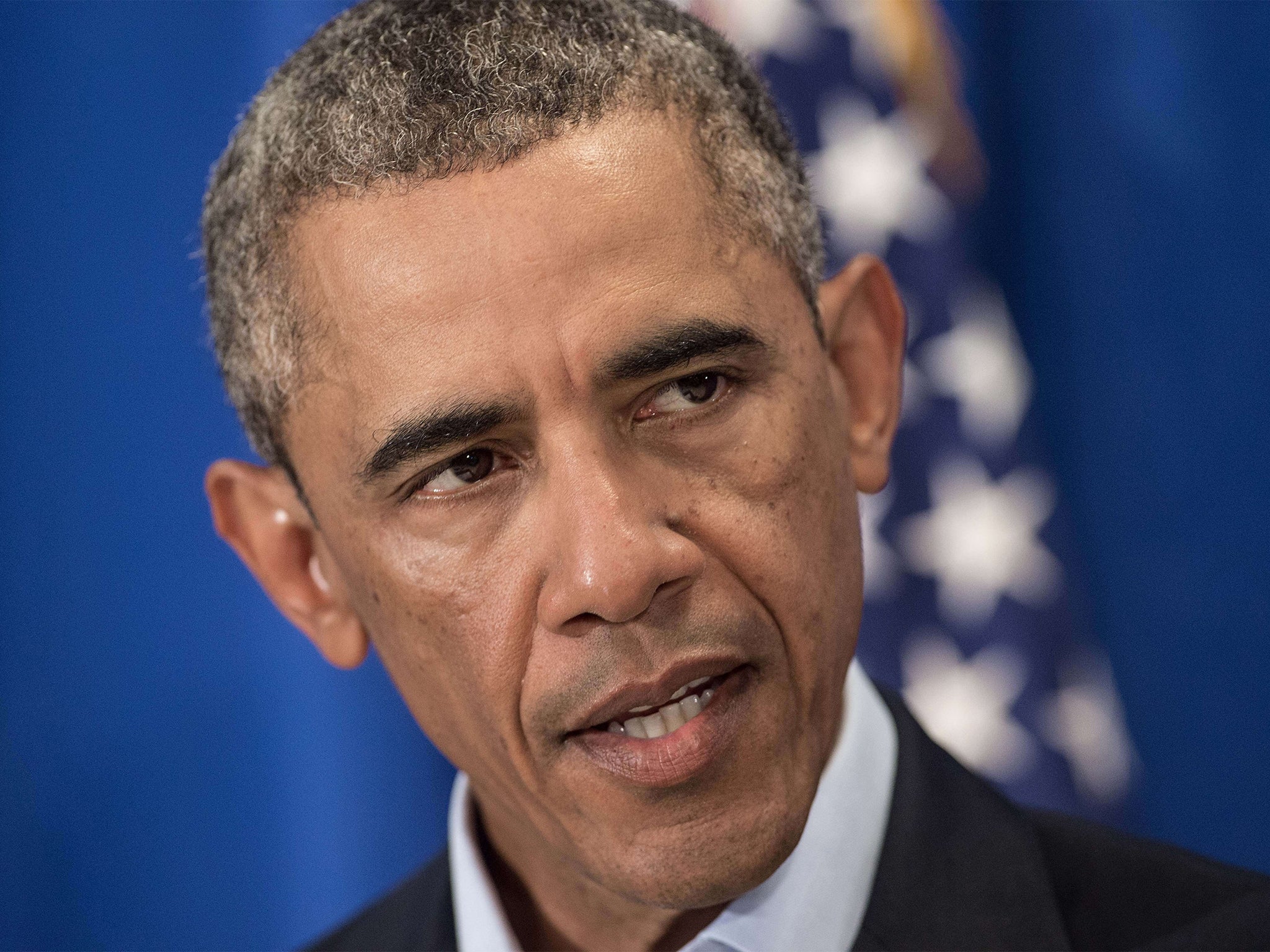President Obama: 'We don't have a strategy to tackle Isis in Syria'
The US is still deciding its next step following air strikes against group in Iraq

Your support helps us to tell the story
From reproductive rights to climate change to Big Tech, The Independent is on the ground when the story is developing. Whether it's investigating the financials of Elon Musk's pro-Trump PAC or producing our latest documentary, 'The A Word', which shines a light on the American women fighting for reproductive rights, we know how important it is to parse out the facts from the messaging.
At such a critical moment in US history, we need reporters on the ground. Your donation allows us to keep sending journalists to speak to both sides of the story.
The Independent is trusted by Americans across the entire political spectrum. And unlike many other quality news outlets, we choose not to lock Americans out of our reporting and analysis with paywalls. We believe quality journalism should be available to everyone, paid for by those who can afford it.
Your support makes all the difference.The US does not yet have a strategy to tackle the Islamic State (Isis) in Syria, Barack Obama has admitted after criticism that American and British failures in the country allowed group to rise.
In a press briefing at the White House on Thursday, the President rebuffed questions over intervention in Syria, saying more consultation was needed with Congress.
He approved air strikes against Isis in Iraq earlier this month following the beheading of American journalist James Foley but has not made public any plans for across the border.
“We don’t have a strategy yet,” he said.
“I think what I’ve seen in some of the news reports suggests that folks are getting a little further ahead of where we’re at than we currently are.”
He did not rule out intervention in Syria but said the country’s civil war was a political as well as military issue and defeating Isis had to involve the co-operation of neighbouring countries.
“It’s an issue that involves all the Sunni states in the region and Sunni leadership recognising that this cancer that has developed is one that they have to be just as invested in defeating as we are,” he said.
“Our core priority right now is just to make sure that our folks are safe and to do an effective assessment of Iraqi and Kurdish capabilities.”
The President’s statement came after reports of a massacre of more than 150 Syrian soldiers at the hands of Isis militants.
A video emerged on Friday showing the beheading of a Kurdish fighter by Isis fighters in their Iraqi stronghold of Mosul, with a warning that more Kurds will be killed if their leaders continue co-operation with the US.
The Sunni extremists control large areas Syria’s north and north-east near the border with Iraq, where fighters pushed into earlier this year and gained control of several towns and cities.
Isis militants are battling Government forces as well as more moderate rebel groups in the Syrian civil war, which shows no sign of ending more than two years after it began.
A UN report documented the group’s reign of terror in its strongholds, holding public executions and floggings, the use of child soldiers, kidnappings, beatings and beheadings.
But the report also accused President Bashar al-Assad’s forces of war crimes and crimes against humanity, including the use of chemical weapons and illegal bombs against civilians, rape and the torture and murder of prisoners in custody.
David Cameron and the Foreign Secretary have ruled out any co-operation with the Assad regime and President Obama did the same on Thursday, saying he has “lost legitimacy in terms of dropping barrel bombs on innocent families and killing tens of thousands of people”.
The President said the Syrian regime does not have the capability to attack Isis areas, where it has lost all control, but said the idea that the US or any outside power could defeat Isis was “unrealistic”.
“We can route ISIS on the ground and keep a lid on things temporarily,” he said.
“But then as soon as we leave, the same problems come back again.”
On Wednesday, the former head of the armed forces blamed Britain and America’s failure to give moderate rebels the means to win the Syrian civil war for the rise of Isis.
General Sir David Richards said the policy amounted to “keep the war alive, but not let the good guys win. Through frustration, Isis has grown and now it's spread to Iraq”.
Both countries considered military intervention after the outbreak of the war in the wake of the Arab Spring and last year, following an alleged chemical attack by the Assad regime on civilians in Ghouta.
The Prime Minister supported action against the Syrian Government but was voted down in the House of Commons.
Join our commenting forum
Join thought-provoking conversations, follow other Independent readers and see their replies
Comments